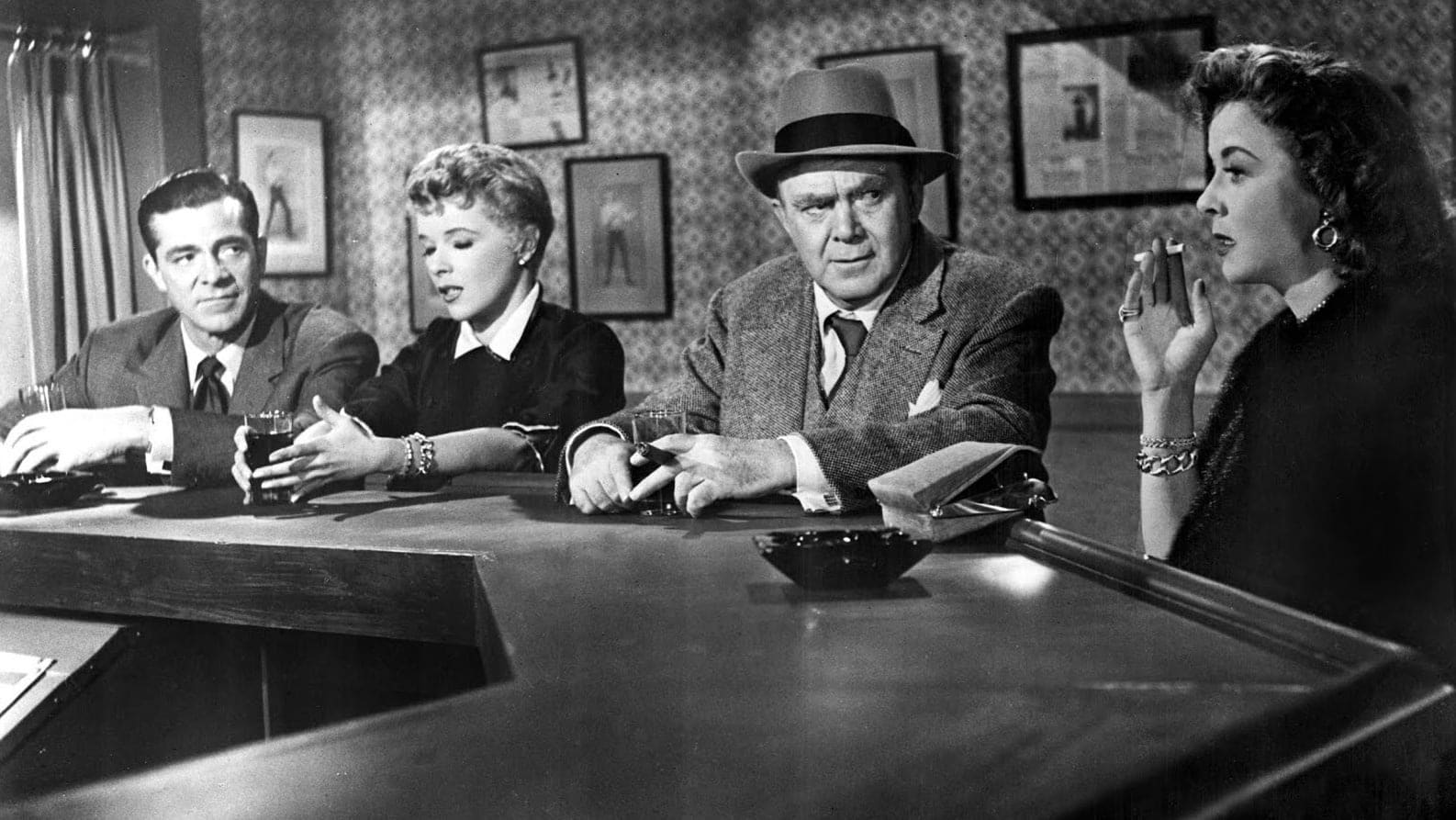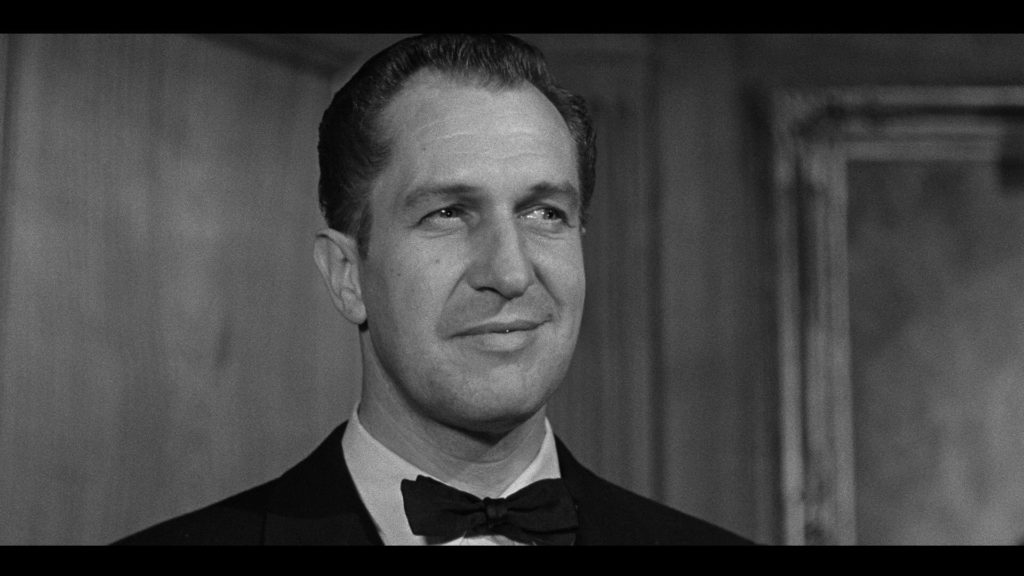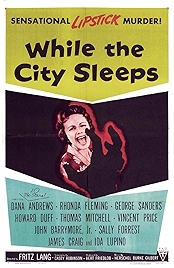While the City Sleeps is one of the great noir titles. Which is not the same as saying it’s one of the great noir movies. In fact it’s barely noir at all.
Though it does start off looking like it might be. A lurid murder before the opening credits, then titles that come blaring at us in gigantic white letters, while Herschel Burke Gilbert’s title music of clarion brass and shrill strings suggests a great noirish feast is about to be served up. The director’s name – Fritz Lang – also promises the same. He’d done Scarlet Street and The Big Heat, after all, noir lodestones.
There’s been a murder and the murderer has left behind a message scrawled in lipstick on the wall of the apartment where he killed the unlucky woman. “Ask Mother,” it reads, leading us into what actually turns out to be one of the great prototype serial killer movies – Seven takes quite a few of its cues from While the City Sleeps. The murderer who loves to leave a clue, who taunts the police, who acts out of a kind of demented sense of destiny, is a twisted ball of mother-love.
There are three stories in one here. The serial killer story, with Dana Andrews as the crusading journalist Ed Mobley. A love story – of sorts – in which Ed tries to get sexy newspaper secretary Nancy (Sally Forrest) into bed, while she tries to get him to the altar, that’s if hard-bitten hack Mildred Donner (Ida Lupino, laying on the Hedda Hopper) doesn’t peel Ed off first for some booze-soaked sex. And weaving between these two stories is the actual driver of the plot, a neat bit of inter-media rivalry between section heads of the gigantic Kyne media conglomerate – a newspaper business, a newswire agency and a TV station – who are all vying for an editor-in-chief position after old man Kyne dies and his feckless son (played by Vincent Price) takes over.
“While the city sleeps” is when newspaper guys (and they are guys) do their work and this is one of the great heroic-journalism movies, set in a world full of people desperate for a scoop and going into battle armed with the conviction that newspapers are a public good. The days of big bad MSM and fake news are way, way in the future.
The drinking is also heroic and Andrews – who has to play drunk a couple of times – was apparently drunk through the entire shoot. It’s one of his best performances, humane and sparky where he can sometimes be a bit bloodless and flat.
Great performances all round. Thomas Mitchell as the grizzled old editor of the Sentinel, a newspaper guy to his fingertips, George Sanders as the oily boss of the wire service, James Craig grabbing the short straw in an underwritten role as “Honest” Harry Kritzer, the lothario head of pictures who’s also secretly having an affair with the new owner’s hot wife (Rhonda Fleming).
There are three noir females – women who get what they want by manipulating men – Lupino, Fleming and Forrest all coming at the femme fatale from slightly different angles, Fleming as the most overtly wanton, Lupino playing the boozy dame who grabs her kicks where she can and Forrest’s Nancy at the Doris Day end of the spectrum. Perky. And she has been dressed so we notice just how perky.
Lang is an in-camera director, as usual, preferring to do with crane, dolly and track what other directors achieve with an edit in post production. It makes for a gloriously fluid film and the longish takes give his actors something to chew on. Ernst Laszlo, one of the great directors of photography, does a fine job but only really gets his head in the scenes towards the end when Mobley is chasing the serial killer down some subway tunnels lit in a style reminiscent of The Third Man.
The whole serial killer angle is a bit of a feint, really, and John Drew Barrymore (father of Drew) is wheeled out to sweat and boggle his eyes only as and when the other elements of the story, which are doing perfectly well on their own, need a bit of a breather.
For all the many claims to greatness, this is a bit of a potboiler, albeit one done with plenty of craft polish and with a lot of fine actors giving it their best. Having virtually created the noir genre in the mid 1930s, Fritz Lang is effectively bringing it to an end in the mid 1950s with this film and its follow-up, Beyond a Reasonable Doubt, a noirish courtroom drama that’s also a bit of a genre mishmash.
Neither is a classic but then the genre, like Lang himself, was exhausted.
While the City Sleeps – Watch it/buy it at Amazon
I am an Amazon affiliate
© Steve Morrissey 2022


